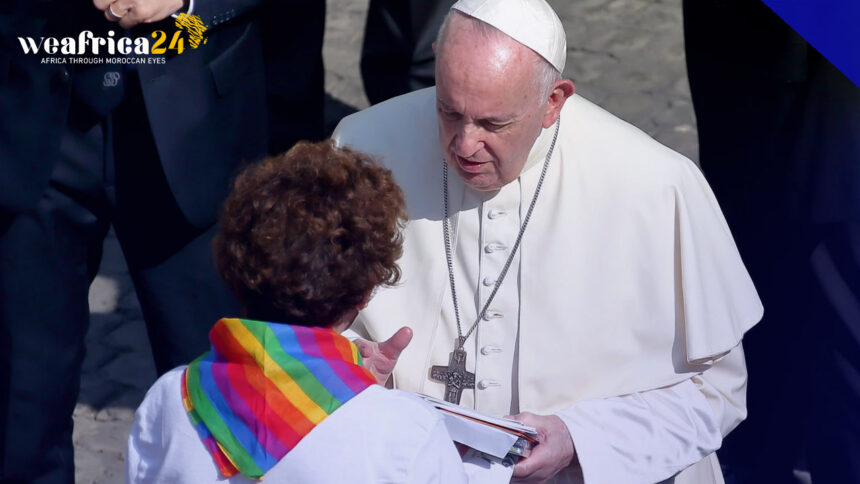Pope Francis‘ recent endorsement of blessings for same-sex couples has sparked both applause and criticism within the Catholic Church. This report scrutinizes the pope’s evolving stance, considering historical contexts, past statements, and the delicate interplay between religious doctrine and societal changes. Delving into the intricacies of Francis’ views, the report aims to provide insight into the theological complexities surrounding the acceptance of same-sex unions in Christianity.
Historical Origins of Christianity
Christianity, emerging in the 1st century AD, originated from the teachings of Jesus Christ and grew out of the broader Judaic tradition. The core tenets of the faith find expression in the Old and New Testaments of the Bible, serving as the authoritative texts guiding Christian beliefs and practices.
Christian Doctrine and Same-Sex Relationships
Christianity, influenced by biblical passages, has historically maintained conservative views on sexuality, particularly regarding same-sex relationships. Interpretations of certain scriptures, often found in the Old Testament, have been cited to oppose homosexual acts. Theologians and scholars continue to engage in debates over the relevance of these verses to contemporary Christian doctrine.
The Catholic Church, guided by the Pope’s leadership, traditionally upholds a sacramental view of marriage between a man and a woman. The Catechism of the Catholic Church categorizes homosexual acts as “intrinsically disordered,” aligning with traditional interpretations of biblical teachings. The Church’s historical stance has been resistant to doctrinal shifts regarding the acceptance of same-sex relationships.
Pope Francis has garnered attention for adopting a more progressive approach within the Catholic Church. His decision to allow blessings for same-sex couples represents a notable departure from the Church’s traditional stance. The Pope’s pastoral emphasis on compassion, mercy, and inclusivity has driven this shift, reflecting an evolving understanding of human relationships within the context of Christian teachings.
Theological Basis for Pope Francis’ Decision
Pope Francis draws on Christian principles of love, understanding, and the concept of a merciful God. His decision is grounded in the belief that, as the spiritual leader of the Catholic Church, he holds the authority to interpret and apply Christian teachings to contemporary issues. The Pope’s pastoral approach aims to embrace diversity while navigating the tensions between evolving societal norms and traditional doctrine.
The acceptance of same-sex marriages within Christianity, and specifically within the Catholic Church, remains a contentious topic. Critics argue that such a departure challenges long-standing interpretations of biblical passages and core tenets of Christian doctrine. The tension between maintaining tradition and adapting to the changing cultural landscape underscores the complexity of reconciling faith with contemporary societal expectations.
Historical Context
Eight years ago, Pope Francis hinted at the acceptance of civil unions in a media encounter, emphasizing the natural characteristic of marriage between one man and one woman. The Vatican’s subsequent clarification discouraged reading more into the pope’s words. While serving as the archbishop of Buenos Aires, Francis endorsed civil unions for gay couples, but he did not publicly support them as pope.
Francis’ history suggests a pattern of potential backtracking, especially when faced with conservative backlash. The recent endorsement of blessings for same-sex couples might elicit anger among conservative Catholics, prompting the pope to seek reconciliation.
The pope’s inconsistency becomes apparent in closed-door meetings, such as in 2016 when he expressed concerns about schools teaching children they could choose their gender. This report explores the tension between Francis’ statements, highlighting the challenges of reconciling traditional doctrine with evolving societal norms.







